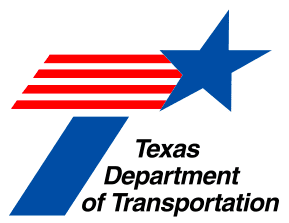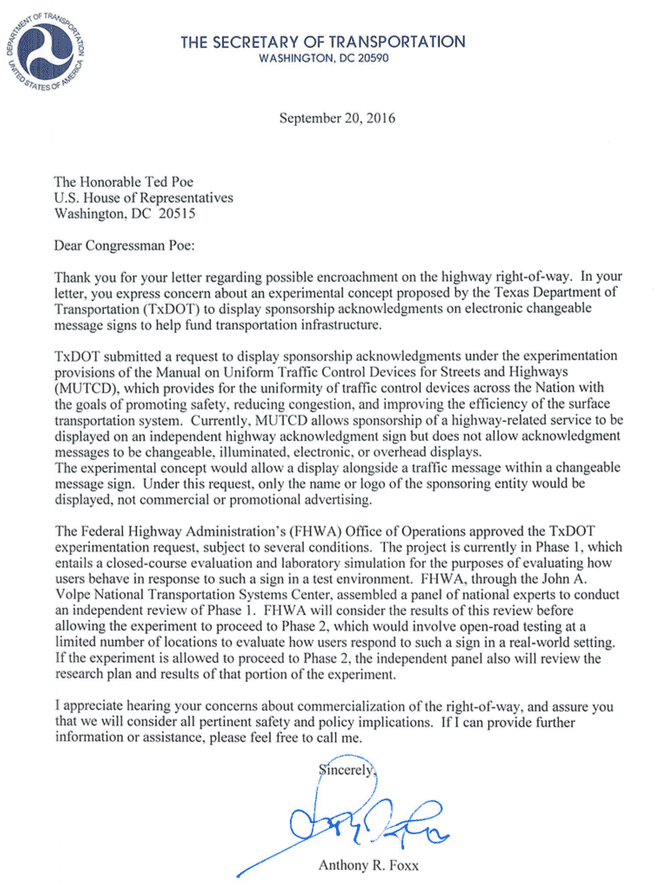 Insider has written before about a State of Texas proposal to put advertising logos within freeway rights of way. Texas is proceeding with a pilot project to evaluate the feasibility of putting logos onto government highway signs in the right of way. Insider has attached a September 20, 2016 letter that Transportation Secretary Anthony Fox sent to Congressman Ted Poe on the issue. The Federal Highway Administration has assembled a panel of national experts to conduct a review.
Insider has written before about a State of Texas proposal to put advertising logos within freeway rights of way. Texas is proceeding with a pilot project to evaluate the feasibility of putting logos onto government highway signs in the right of way. Insider has attached a September 20, 2016 letter that Transportation Secretary Anthony Fox sent to Congressman Ted Poe on the issue. The Federal Highway Administration has assembled a panel of national experts to conduct a review.
Phase 1 will involve a closed course evaluation and lab simulation to evaluate how drivers behave in response to a sign in the right of way.
Phase 2 will involve open road testing of a limited number of locations to evaluate how users respond to the signs.
 Insider’s take: If you are a Texas outdoor advertising company you need to be letting Texas DOT, the FWHA and your state legislator know that you aren’t happy that your regulator is entering your business. Here are three reasons why this proposal is misguided.
Insider’s take: If you are a Texas outdoor advertising company you need to be letting Texas DOT, the FWHA and your state legislator know that you aren’t happy that your regulator is entering your business. Here are three reasons why this proposal is misguided.
- It threatens state highway funding. The federal government prohibits advertising on federal rights of ways. Any State which runs advertising on public safety signs must obtain federal signoff or face loss of federal highway funds. Both are bad options; the Federal Highway Administration should retain its longstanding policy to prohibit ads within the right of way.
- It smacks of hypocrisy and self-dealing. Freeway advertising is bad except if we are getting paid seems to be the message. Insider thinks that any State which has stringent outdoor regulations and permits advertising on state public safety billboards is asking for a lawsuit by disadvantaged private billboard companies.
- It creates free speech issues and disputes. Several states have tangled with free speech issues in their Adopt-a-Highway programs. Volunteers who pick up litter along highways are recognized as sponsors on Adopt-a-Highway signs on the public right of way. In 2012, Georgia denied a Klan group’s application on grounds that the Adopt-a-Highway program is for “civic-minded organizations in good standing.” Rejecting that reasoning, Georgia Courts said viewpoint-based discrimination was not allowed under the Georgia Constitution.

Paid Ad

















